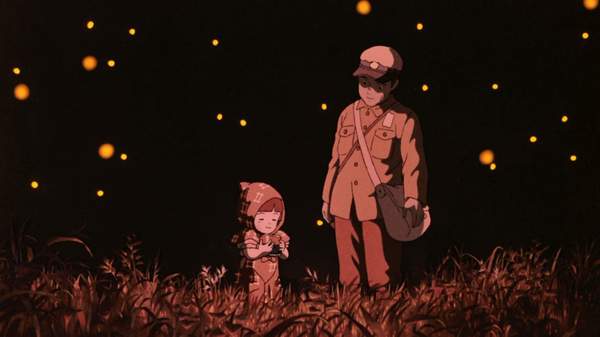Overview
When Studio Ghibli was first formed back in 1985, the Japanese animation house came about thanks to three parties: filmmakers Hayao Miyazaki and Isao Takahata, and producer Toshio Suzuki. While Miyazaki has become synonymous with the company in the three decades since and Suzuki is now one of Japan's most successful producers, Takahata deserves just as much acclaim and attention. Indeed, it was his first stint behind the camera that helped establish Ghibli on the international stage. Further, his most recent movie earned him an Academy Award nomination for best animated feature.
Before his passing this week at the age of 82, Takahata's career also spanned a busy stint in television during the '60s and '70s, as well as producing roles on three important animated titles — Miyazaki's pre-Ghibli flick Nausicaä of the Valley of the Wind, his first studio effort Castle in the Sky, and the company's gorgeous collaboration with Dutch animator Michaël Dudok de Wit, The Red Turtle. As a filmmaker himself, he may have only helmed five features, but they're all Ghibli classics. In fact, if you're a fan of the beloved outfit, they're definite must-sees that demonstrate the studio's visual, emotional, thematic and narrative range.
GRAVE OF THE FIREFLIES
The most heartbreaking animated film ever made — and one the most heartbreaking films ever made in any format, too — Grave of the Fireflies proved Studio Ghibli's first masterpiece. In fact, it's a movie the studio has never come close to matching since, even though the company's stellar flicks continually enchant and delight. Given the war drama is a rare Ghibli effort that plunges into dark territory, telling the tale of two siblings desperately struggling to survive in the last days of the Second World War, that's completely understandable. Takahata's handling of the film's moving and sorrowful story couldn't be more astonishing, from the fleshed-out characters tussling with life and death, to the striking visuals, including the titular glowing bugs.
ONLY YESTERDAY
Like his filmmaking debut, Takahata's second directorial effort doesn't resemble much of Studio Ghibli's output. Based on the 1982 manga of the same name, Only Yesterday eschews child-focused fantasies for the incredibly relatable inner turmoil of 27-year-old Tokyo worker Taeko. Rather than entering fanciful worlds, the film follows its protagonist's attempt to reconcile her childhood dreams with the life she's now living. It's a mature, thoughtful effort — and one that was only re-released two years ago, with an English-language voice cast of Daisy Ridley and Dev Patel. Upon its initial stint in cinemas in Japan in 1991, it became the highest-grossing Japanese film of the year.
POM POKO
Another box office hit — in fact, Pom Poko was the highest-grossing Japanese film in Japan in 1994 — Takahata's next flick introduced the world to mischievous racoon-like critters. Called tanuki and finding their basis in folklore, the creatures can transform into almost anything; however their habitat outside of Tokyo is under threat from developers. With ecological matters a common thread in Ghibli movies, this touching delight proves a quintessential addition to the fold, combining magical wonder with a message. It's an endearing fable, and one that matches its narrative with memorable imagery, as always.
MY NEIGHBOURS THE YAMADAS
My Neighbours the Yamadas is the studio's most visually distinctive effort. Based on the manga Nono-chan, it's the company's first fully digital film, but it favours the look of a hand-drawn, watercolour-painted comic strip over the usual Ghibli aesthetic. The stylistic choice suits the content perfectly, not only immersing audiences into the series of vignettes about the Yamada family, but offering a visible reminder that nothing is ever as simple as it appears. That's a statement that keeps bubbling to the fore as the quirky flick delves into recognisable situations with humour and heart.
THE TALE OF THE PRINCESS KAGUYA
In The Tale of the Princess Kaguya, the eponymous girl blossoms within a bamboo shoot. She's not the only thing that blooms in this hand-drawn beauty, which marked Takahata's first film as a director in 15 years. Rumoured at the time to be his last feature and sadly proving to be case now, it's a gentle, elegant and entrancing story that charts the princess' growth, depicts her turmoil as her own desires clash with everyone else's expectations, and evolves from a seemingly standard setup into something subversive and meaningful. And, like almost everything throughout the filmmaker's career, it's a movie that no one else could've made in the same way.
